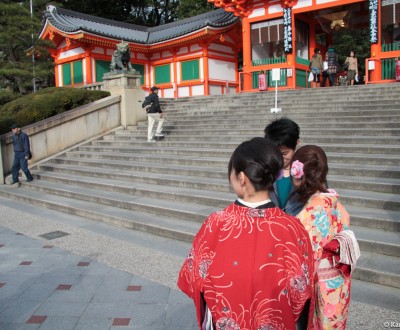Public holidays in Japan
Non-worked Japanese National Celebrations
Japanese people work a lot (long hours, at least) and are sometimes reluctant to take their days off. Therefore, the government regularly adds public holidays to "force" employees to rest. The Japanese archipelago has thus become one of the countries with the most days off in the world, thanks to about 20 national non-worked days.
List of Japanese national holidays throughout the year
Here is the list of national celebrations, which correspond to public holidays in Japan. These days also mark the leave of some administrations, as well as certain Japanese gardens, parks, museums and temples / shrines. However stores and shopping malls remain usually opened on these dates.
A good tip when traveling in Japan: when a national holiday falls on a Sunday, the following Monday (the next day) becomes a non-worked day.
To be very detailed, we can add to this list countless regional and local festivals, but they are rarely days off.
Also, there are a certain amount of other big annual events (Obon in August, Shichi-Go-San in November, Christmas in December…) which are celebrated nationwide but not as public holidays.
Japan’s national holidays in 2026
In 2026, Japan will celebrate the following non-worked days:
- Thursday, January 1rst: New Year’s Day;
- Monday, January 12: Coming of Age Day;
- Wednesday, February 11: National Foundation Day;
- Monday, February 23: Emperor Naruhito’s birthday;
- Friday, March 20: Spring Equinox Day;
- Wednesday, April 29: Showa Emperor’s birthday;
- Monday, May 4: Greenery Day;
- Tuesday, May 5: Children’s Day;
- Wednesday, May 6: Constitution Memorial Day (in addition to Sunday, May 3rd);
- Monday, July 20: Marine Day;
- Tueday, August 11: Mountain Day;
- Monday, September 21: Respect for the Aged Day;
- Wednesday, September 23: Autumnal Equinox Day;
- Monday, October 12: Health and Sports’ Day;
- Tuesday, November 3rd: Culture Day;
- Monday, November 23: Labour Thanksgiving Day.
Holiday weeks in Japan
In Japan, there is also a traditionally strong concept, happening once or twice a year: a collection of public holidays in a row which, end by end, make up a small resting week for many Japanese people.
During these seasonal periods, Japan is idling, while transportation (especially trains 🚅 and domestic airports to exit from large urban centers) and sightseeing spots get very crowded.
First there is the Golden Week / ゴールデンウィーク: May 3-4-5 + the weekend, sometimes supplemented by a "Silver Week" in late September.
And finally, the Oshogatsu / 御正月 period: from December 29th to January 3rd, traditionally dedicated to house cleaning and onsen ♨️ break. Some people also call it the "Second Golden Week". Note that many tourist attractions, shops and restaurants are closed during those days.


